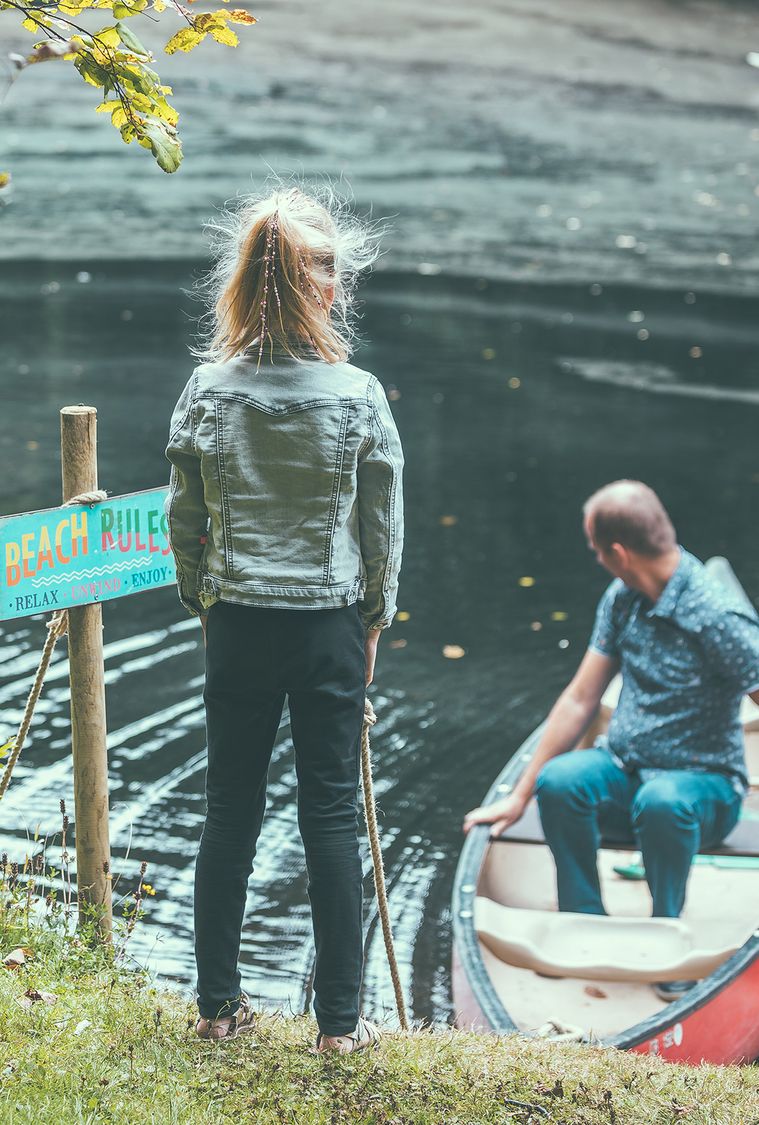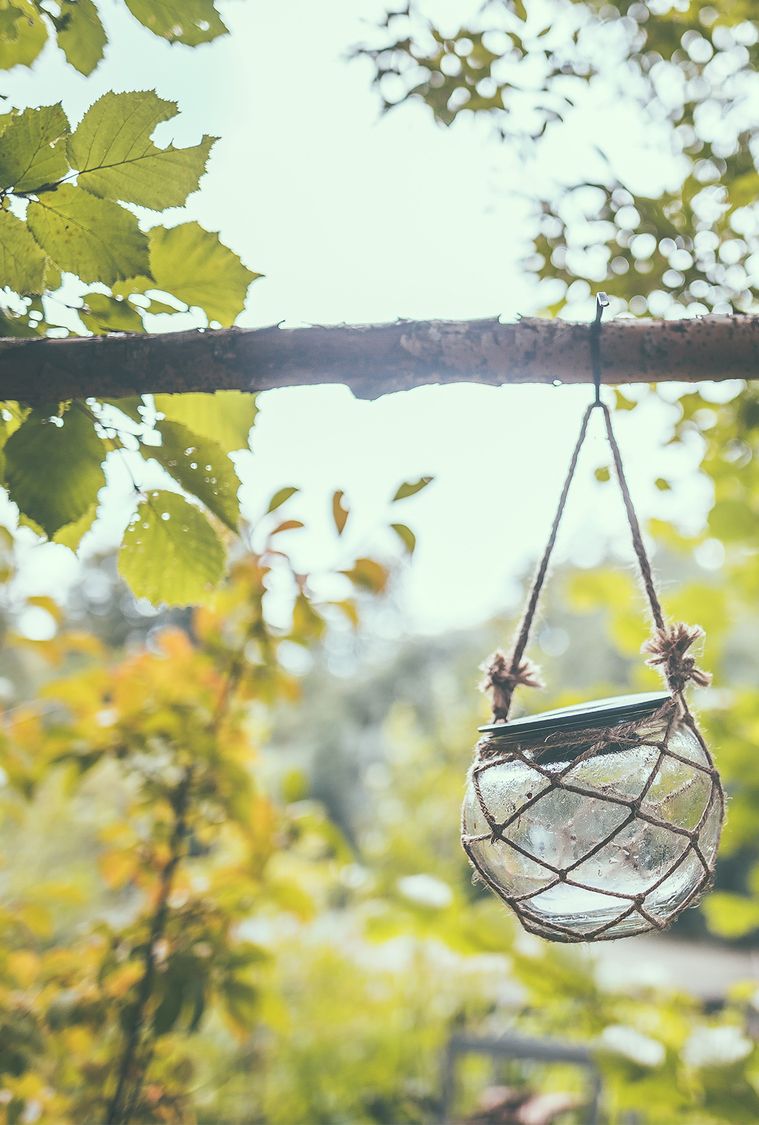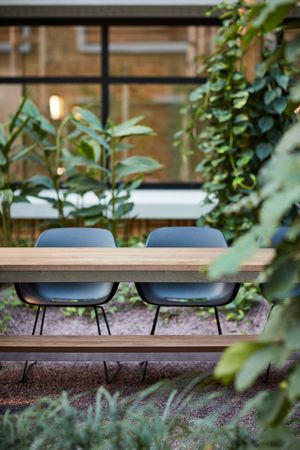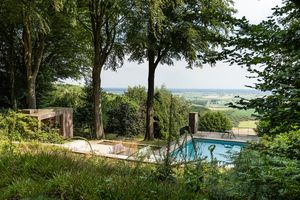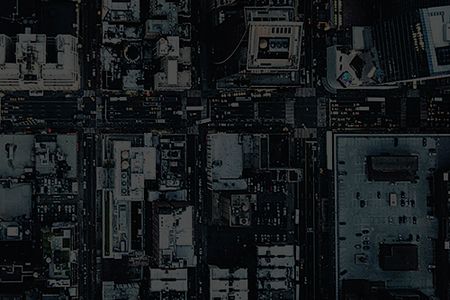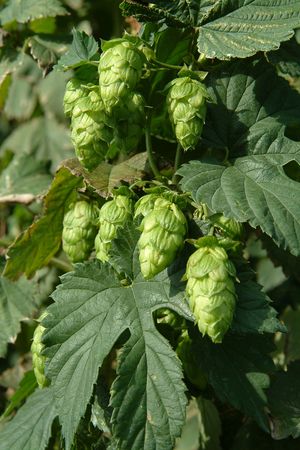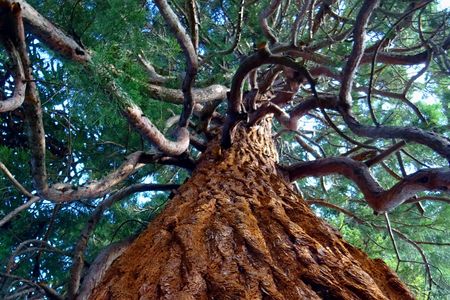With his Pop-up Hotel initiative, digital entrepreneur Thomas D’hooge wants to create spaces to slow down, to stop and smell the proverbial roses. Last summer, he set up camp in the Bulskampveld in Bruges with a number of ‘tiny houses’. These 15-m2 living spaces each contain a compost toilet, a shower, a kitchen, two seating areas, a two-person bed, storage space and sometimes even a rooftop terrace. In short, they perfectly combine sustainability with optimum use of space. Furthermore, each tiny house was accompanied by one of our tools for togetherness. Needless to say, we had to have a talk with him.
Looking for paradise
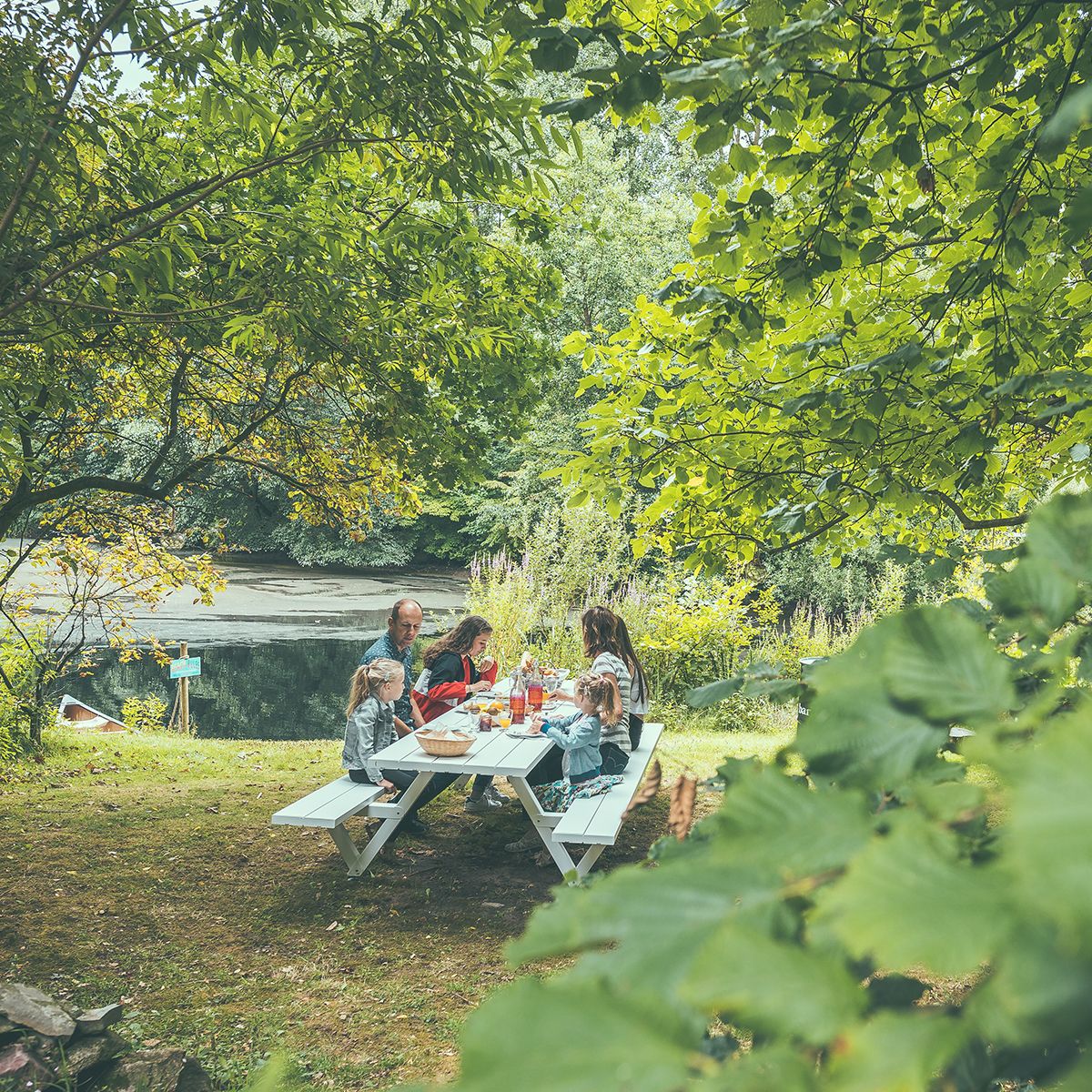
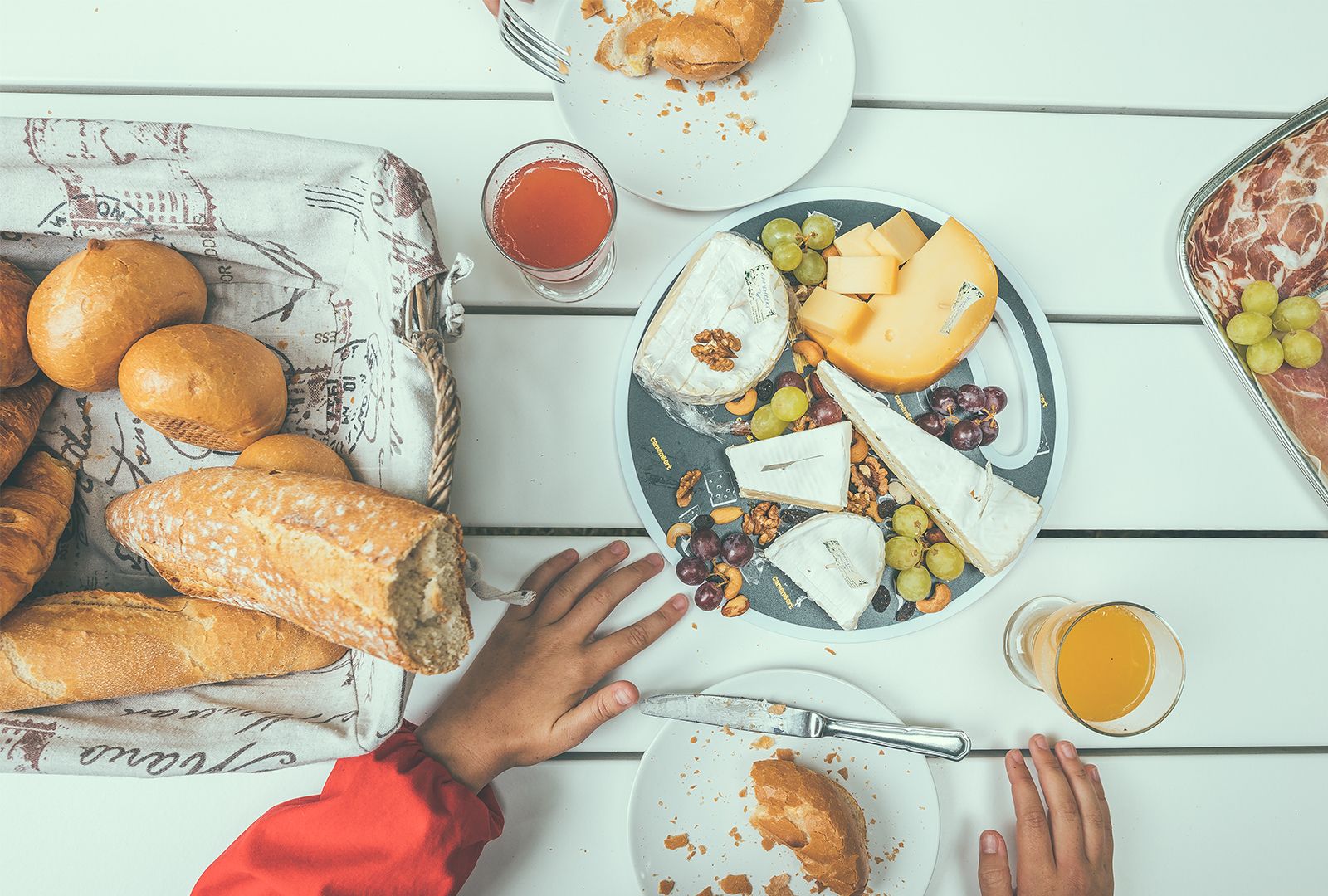
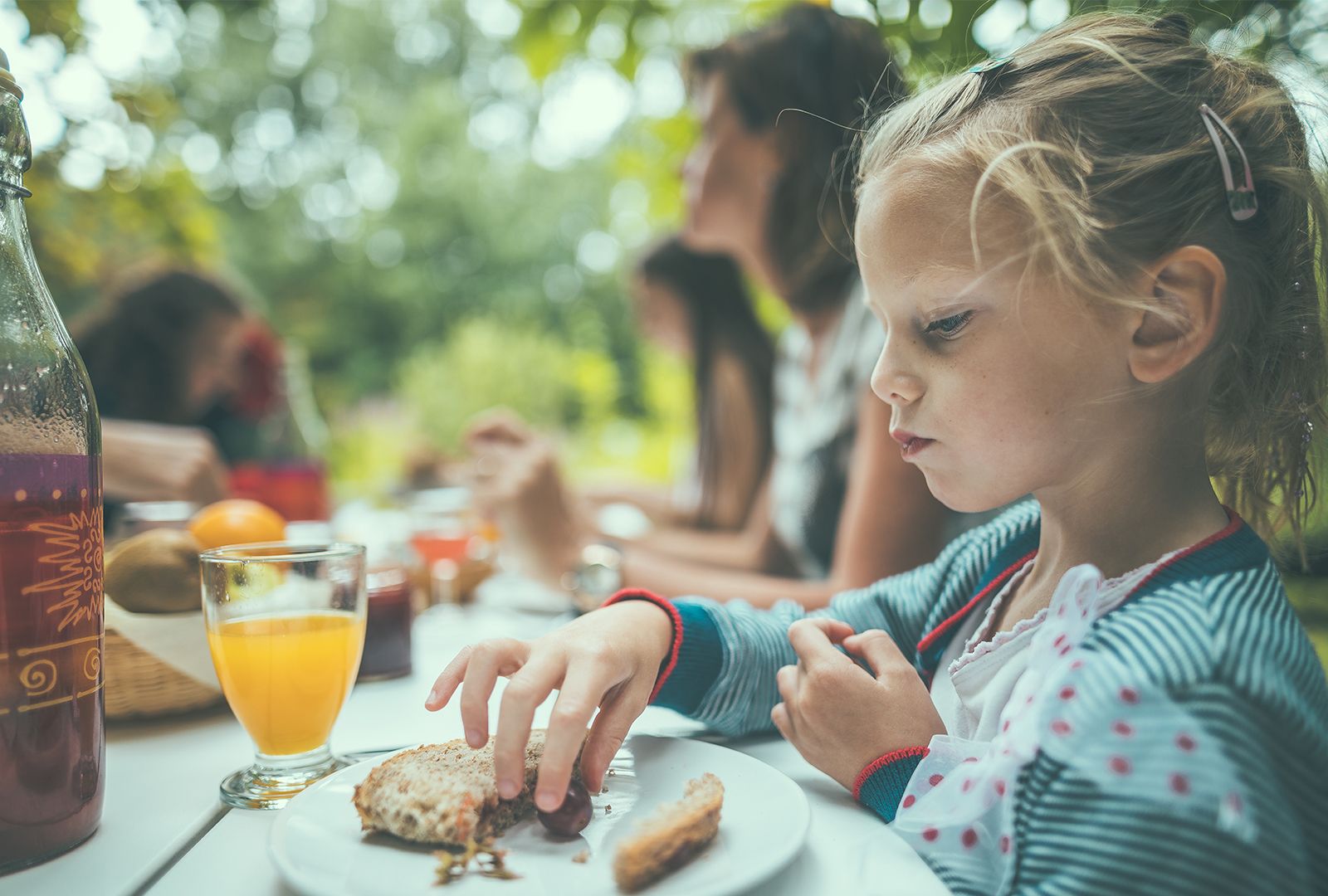
How did the idea for The Pop-Up Hotel come about?
A few years ago, I felt like the ground was shifting beneath my feet. I had been suffering from depression for a year, and that year had taught me to enjoy the little things in life. Things that didn’t cost anything but were extremely valuable, like playing with the kids, walking in the countryside, gathering around the campfire, looking up at the stars, etc. In the following year, I drew up a business plan that went as follows: buy a plot of woodland, set up some fun places to stay and invite people in a similar situation to come and slow down for a while and learn to enjoy life again. That is a serious business model, too big to put into practice all at once. So, we launched an experiment last year called ‘The Pop-Up Hotel’. People could book a stay at the hotel for two months. It was a test for the definitive plan: Paradise.
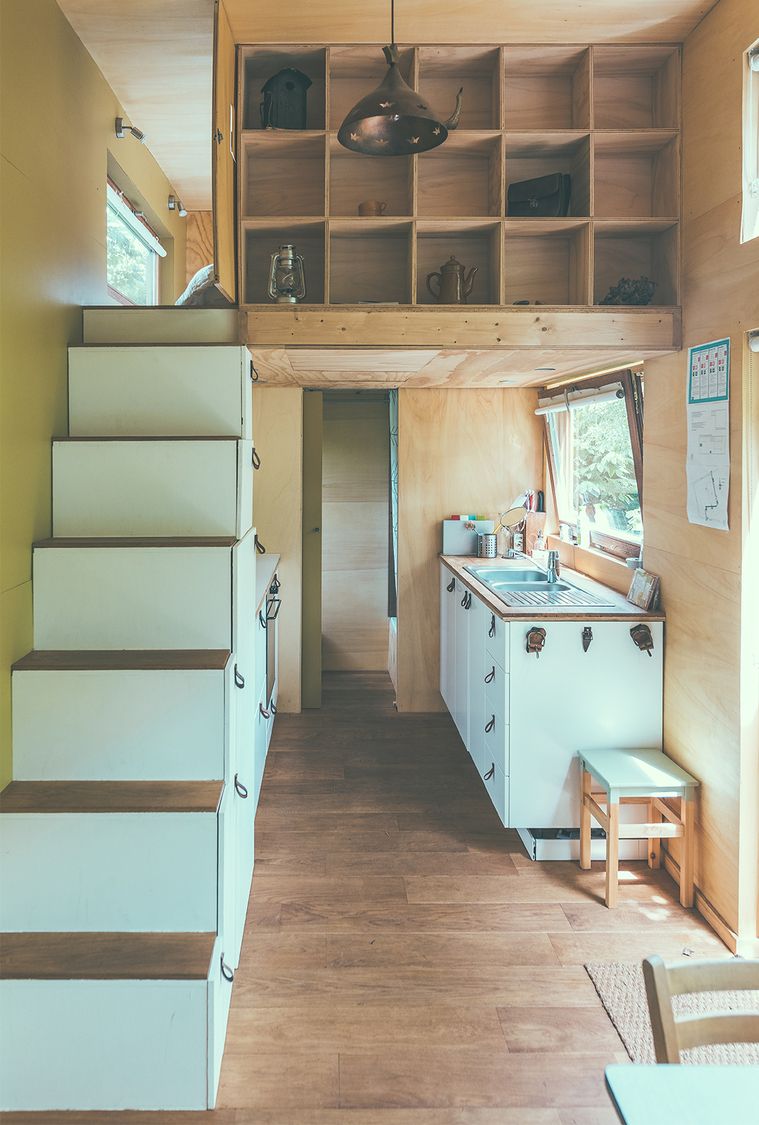
How did you put the idea into practice?
The essence of The Pop-Up Hotel and Paradise is slowing down and adapting to the pace of nature. To attract a wide audience, we decided to go for the more stylish concept of glamping. There is no point trying to get 50-year-olds into a tent. And ultimately, we want to link it to an experience that people react to along the lines of “damn, I’ve never done anything like that before”.
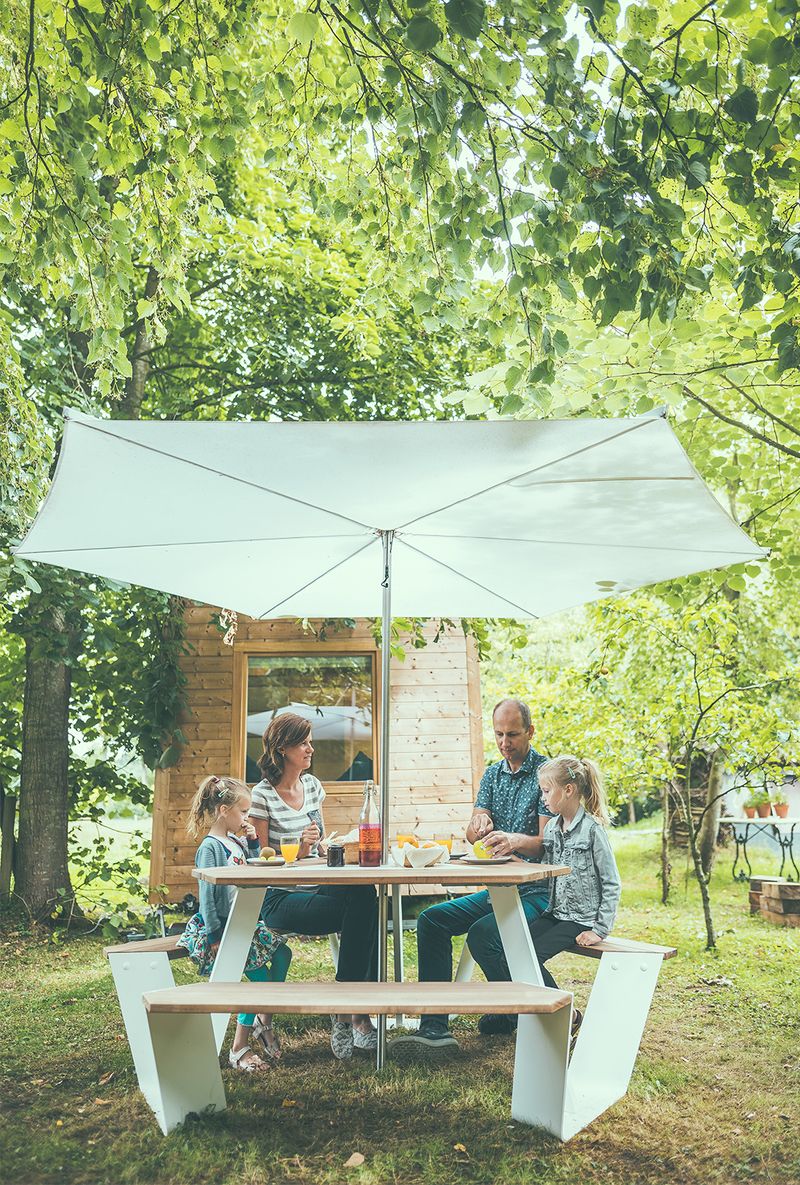
That vision was already clear in December 2016, but it is only thanks to the volunteers, who turned up at various times in those six months, that the project really began to take shape: quality mattresses for a really good night’s sleep, tiny houses that didn’t compromise on comfort, and a pleasant cooking experience thanks to Barbecook and Greenpan. I suppose you could let people sit on carved wooden benches, but the use of Extremis furniture took the experience to a much higher level. I am extremely grateful for that.
The combination of nature and Extremis furniture was a revelation. It was fantastic. The photos show what I mean. Extremis products also fit perfectly into our concept. It is not just the style that sparks the imagination; the products are well-thought-out and ergonomic. But the thing I was looking for right from the start was to make sure everything had something to do with sustainability, and to work with organisations that used sustainable products. That was a clear link to Extremis in itself. Another link is Extremis’ value of ‘togetherness’. One of the little things in life that doesn’t cost anything is having breakfast together and a good conversation. Of course, those values correspond perfectly with the philosophy of The Pop-Up Hotel. It was a no-brainer.
The use of Extremis furniture took the experience to a much higher level: the combination with nature was a revelation.
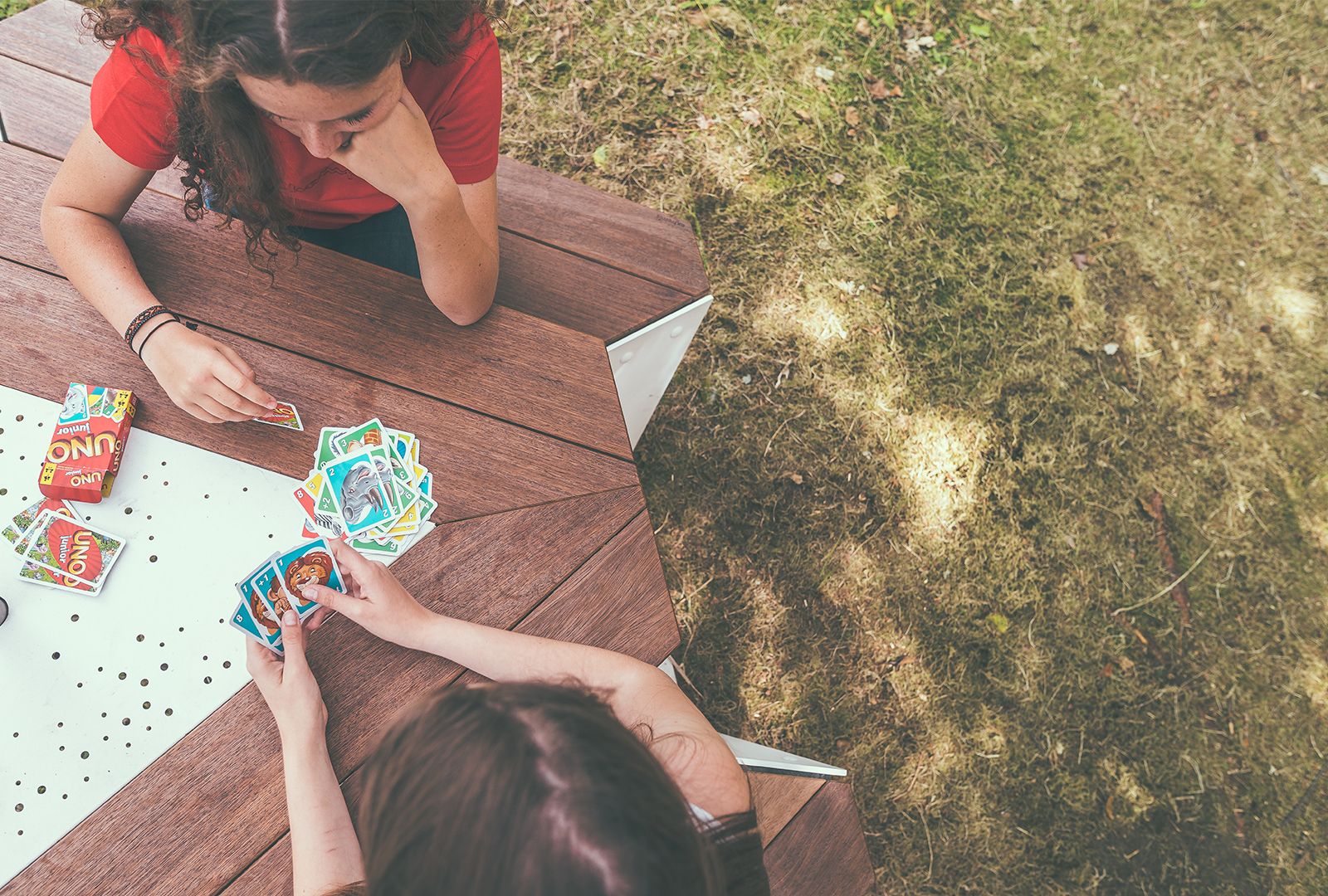
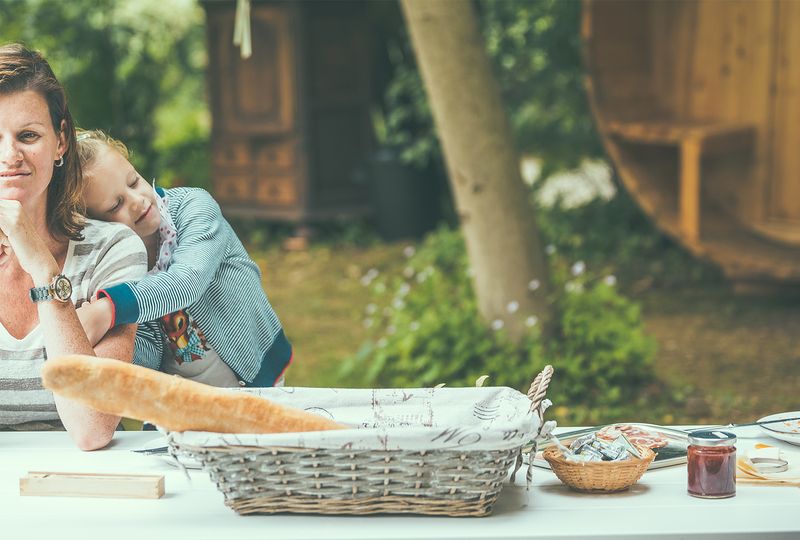
What does togetherness mean to you?
Simply having breakfast together in the morning. You can’t be more together than that. We had a really delicious, affordable breakfast at The Pop-Up Hotel. The guests always ate their breakfast outside under parasols that don’t let a single drop of rain fall on their food. But people spent a lot of time playing board games too, for example, and all of it happened around the same table. Every tiny house had its own infrastructure: its own Extremis Anker picnic table and a barbecue. But we also had a kind of plaza with a sauna barrel. That was where the long togetherness picnic table Marina was, and if people from different houses wanted to hang out together, they used the Marina. That created another connection between the various different tiny houses.
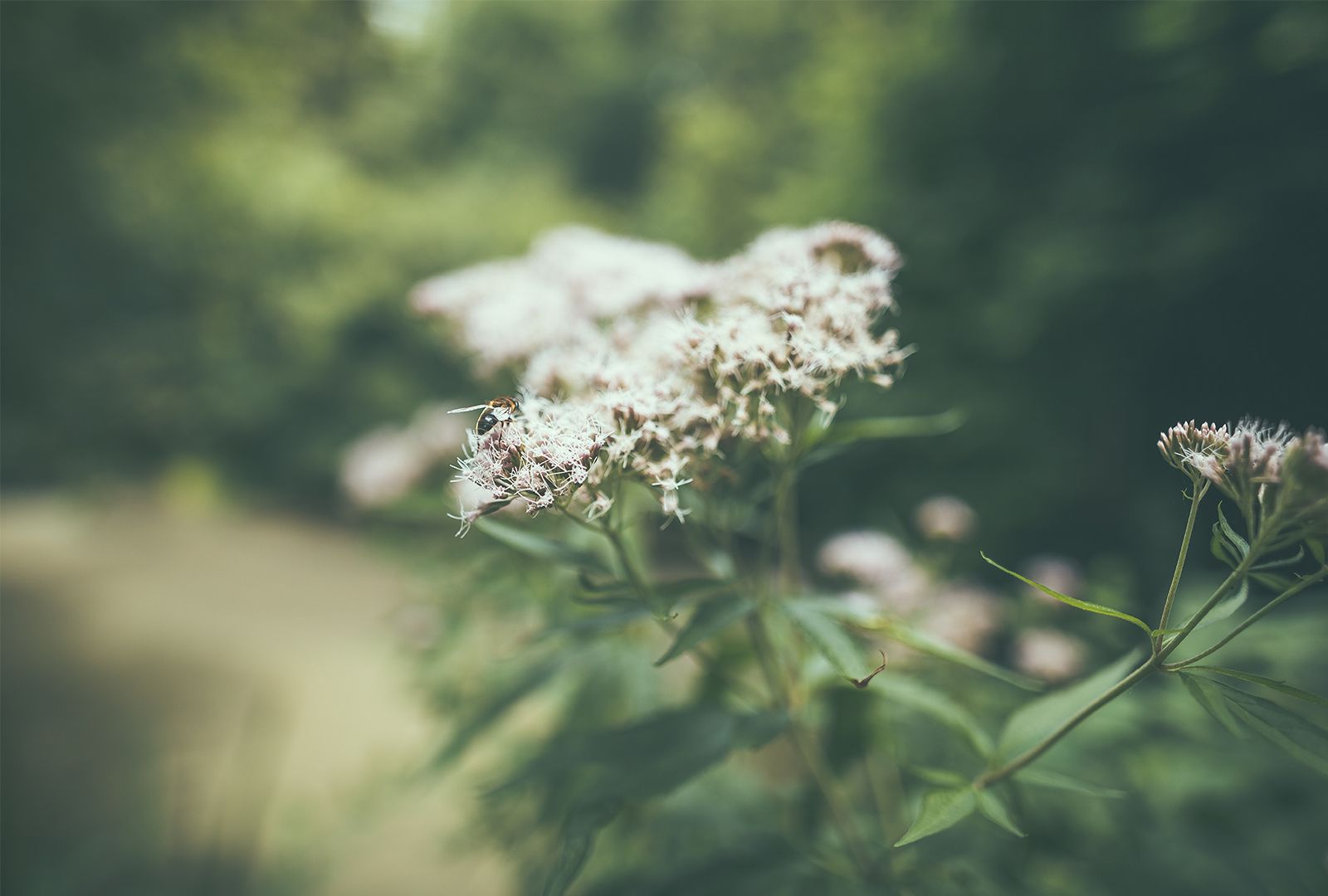
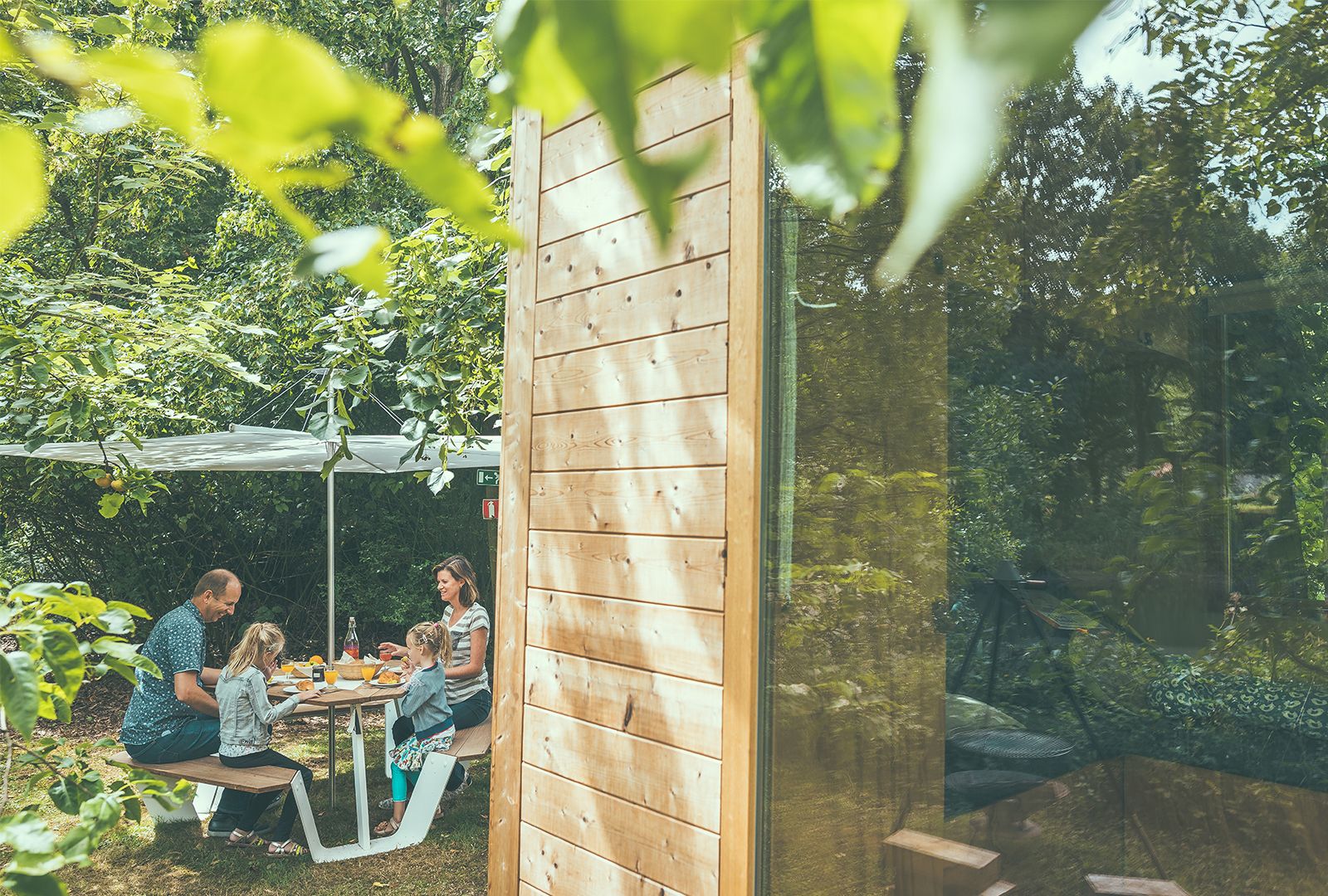
What effect has a stay in The Pop-Up Hotel had on guests, do you think?
We had a guestbook in the hotel, and I urged everyone to fill it in honestly so that we could use their feedback to find out what we needed to improve. But seriously, that guestbook has warmed my heart so many times. People did exactly what I hoped they would do. They enjoyed each other’s company, lingered over breakfast, played games, read books, walked, cycled and stayed away from their mobile phones for a while. Digital detox was a very important component of The Pop-Up Hotel for me, and that really was what people did. Everyone felt – and lived – close to nature.
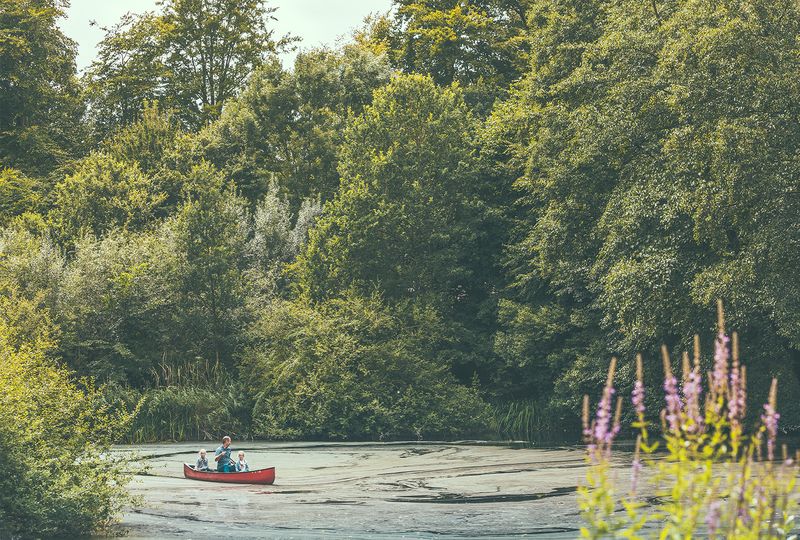
I believe that our society is far from peaceful. The rat race, the ‘stress-is-a-drug’ society… I’m not even the one who came up with those terms. People are expected to be in touch and available around the clock. On social media, by e-mail, messenger, phone. If you want to succeed in your aim of simply getting people to calm down, the first thing you need to do is take all those stimuli away. That is why there was no television, either. We really did let people hand over their smartphones in exchange for Nokia 3310s, so that they were reachable if necessary.
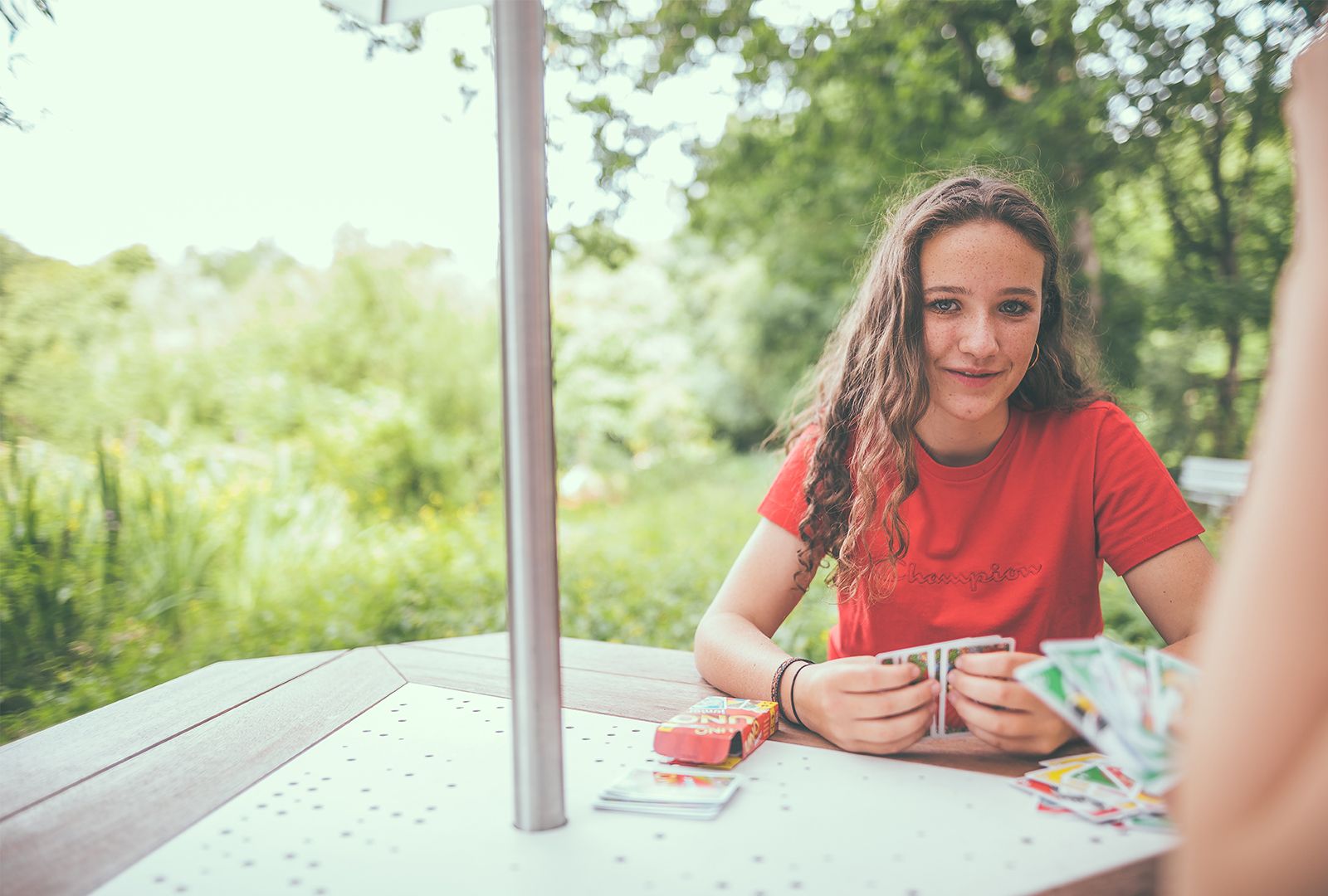
What are your plans for the future?
We are hard at work now to realise our ultimate goal, that permanent place of ours: Paradise. We hope to find a place for it as soon as possible, so that we really can make the concept permanent. A place where people can come to unwind for a bit. To leave civilisation behind and enjoy the little things in life. We have big ambitions. Ultimately, I want to try and make the world a slightly better place through my entrepreneurship, and do things that are important. For example, Paradise is not just about escaping burnout, depression, chronic stress and the rat race: it is also about protecting nature for generations to come.
